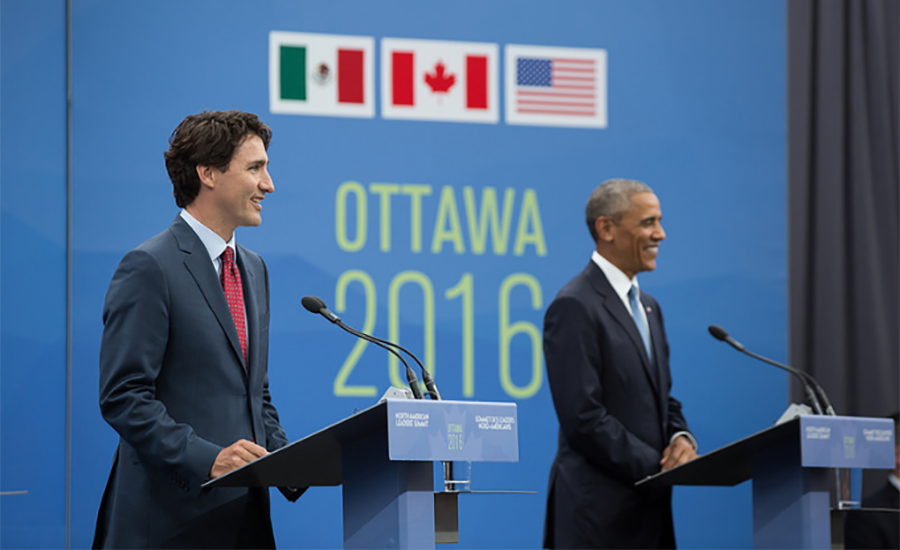The U.S. and Canada continue to encounter major differences as they try to work out a new agreement governing exports of softwood lumber, but they also say further talks are planned to try to resolve the contentious issues.
After a summit meeting in Ottawa in late June among the leaders of U.S., Canada and Mexico, President Obama and Prime Minister Justin Trudeau said their negotiators would “maintain an intensive pace of engagement” and are seeking to strike a deal in the fall.
The current talks mark the latest chapter in what has been a long and difficult trade dispute. The two countries approved a six-year softwood lumber pact in 2006 and extended it, in 2012, for three years.
Since October 2015, they have been in a one-year standstill period in which the countries are to refrain from filing trade complaints against each other. That period ends on Oct. 12.
In a joint statement issued on June 29, Obama and Trudeau said a key item, among others, to be worked out is a market-share figure for Canada’s U.S. exports. That figure is still “to be negotiated” and would reflect “the stability, consistency and flexibility necessary to achieve the confidence of both [countries’] industries,” they said.
The two leaders also reiterated their respective top trade officials’ June 17 statement that there are still “significant differences” between the two sides.
Softwood lumber is an important material for housing construction. Canadian lumber exports account for about 28% of the U.S. market, according to the National Association of Home Builders.
The U.S. Lumber Coalition in a June 30 statement noted, “For a new agreement to be durable, it must establish border measures that are effective in all market situations and be sufficiently robust to prevent Canadian producers from exceeding the target market share.”
The group added,“The U.S. industry will not give up its rights under the U.S. trade laws in return for an agreement that fails to meet these objectives.”
Susan Yerkovich, British Columbia Lumber Trade Council president, in a June 30 statement said, “Market share has always been a central feature of past trade agreements,” adding, “We are pleased that both governments recognize the need for an agreement that provides flexibility in approaches in achieving that objective.”
Yerkovich continued, “The ability to choose between an export tax model and a hard-cap volume restriction, similar to the structure of the 2006 [agreement], has been an important principle for the B.C. industry throughout these discussions.”
Congressional lawmakers also are weighing in. A group of 23 U.S. senators—13 Democrats and 12 Republicans—have written to U.S. Trade Representative Michael Froman, welcoming the June 29 U.S.-Canada statement's mention of market share as a key issue.
In their letter, dated July 19, the legislators also say that a negotiated agreement is one way to deal with the lumber trade issue, but add that the 2006 pact "became an ineffective framework" for addressing Canada's timber policies as market dynamics changed over the years.
They add, "A truly durable solution cannot be based on an outmoded framework that does not offset the harmful effects of subsidized Canadian lumber in the U.S. market or allow the U.S. industry to invest and grow to its natural size without being impaired by unfairly traded imports."
Story updated on 7/20/16 with U.S. senators' letter.



